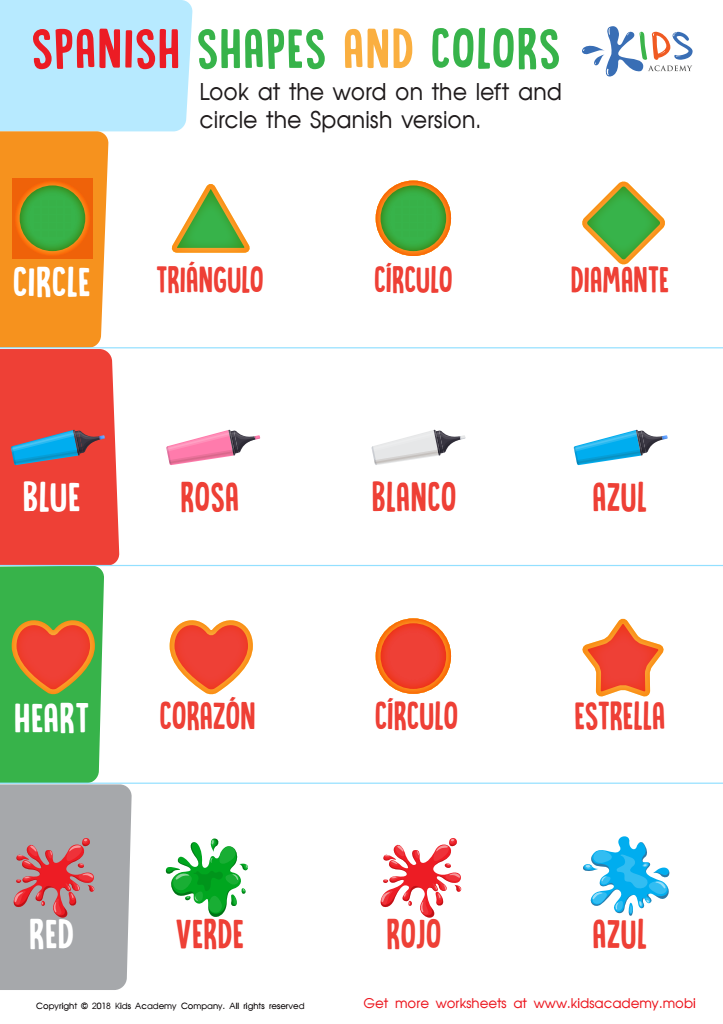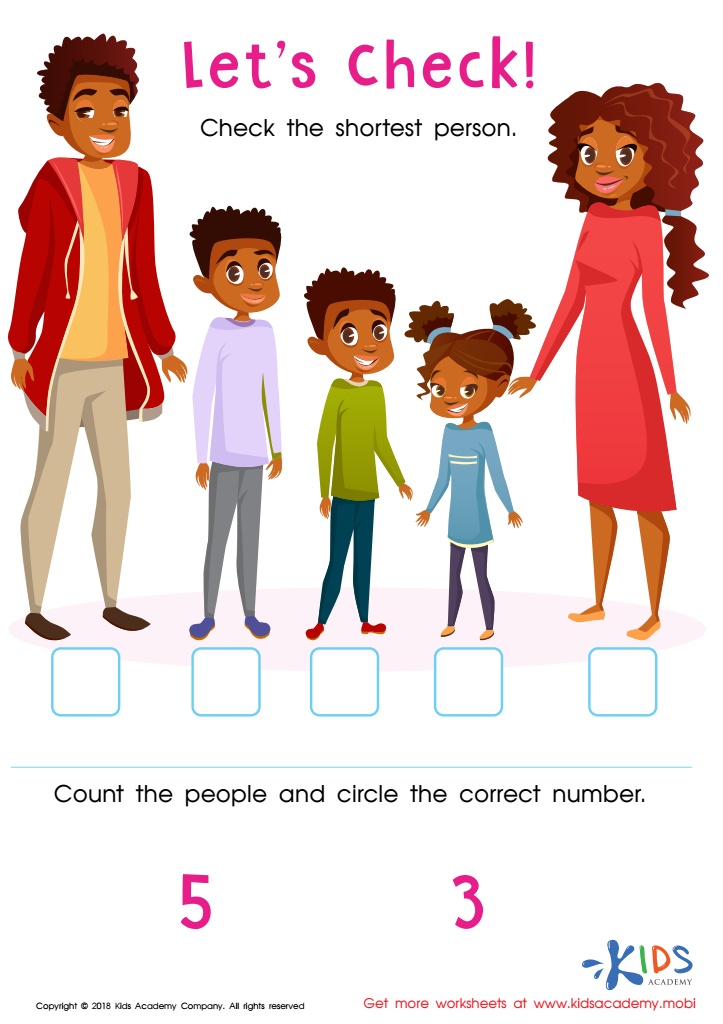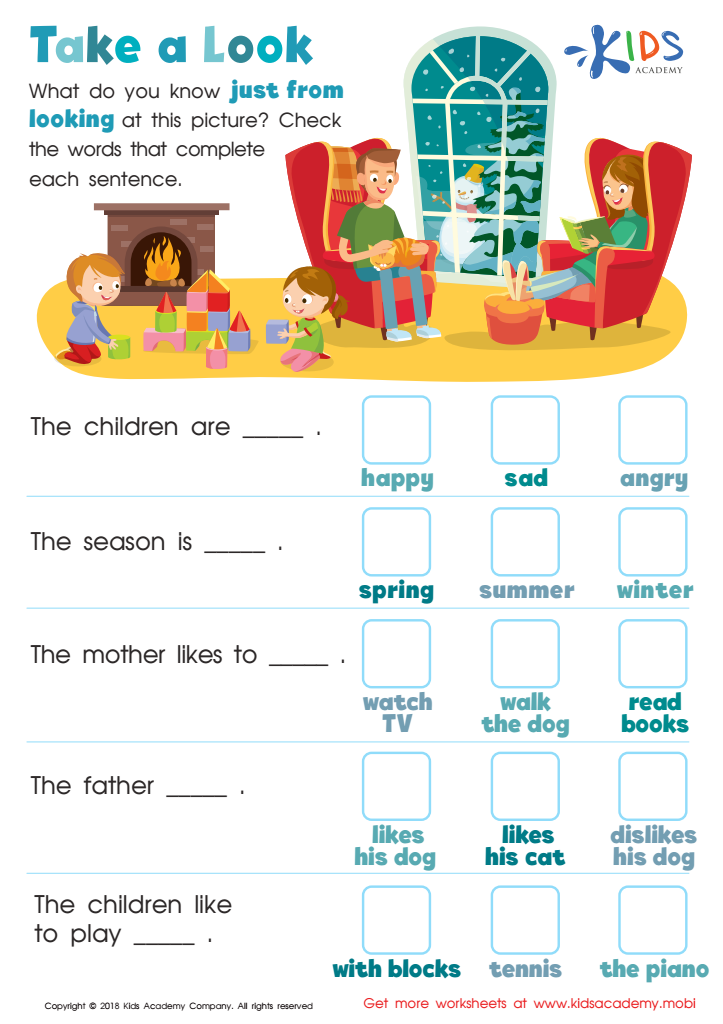Shape Recognition Social Studies Worksheets for Ages 5-8
4 filtered results
-
From - To
Discover an engaging way to enhance your child's social studies learning with our Shape Recognition Social Studies Worksheets for Ages 5-8. Carefully designed for young learners, these worksheets blend essential social studies concepts with fun shape recognition activities. Children will enjoy interactive exercises that develop their understanding of shapes while exploring historical landmarks, cultural symbols, and community structures. Perfect for both classroom and at-home learning, our worksheets aim to improve cognitive and fine motor skills, ensuring a comprehensive educational experience. Inspire curiosity and make learning exciting with these captivating and educational worksheets. Visit our webpage for more details.


Spanish Shapes and Colors Worksheet


Let's Check! Assessment Worksheet


Playground Worksheet


Take a Look - Part 1 Worksheet
Shape recognition and social studies education for children aged 5-8 are integral parts of early learning that contribute significantly to cognitive and social development. Shape recognition helps young children understand and navigate their world by equipping them with skills for identifying and categorizing objects. This fundamental ability lays the groundwork for more advanced mathematical concepts like geometry, patterns, and spatial reasoning. The ability to recognize shapes is also closely linked to language and literacy, as children first learn to differentiate alphabetic characters based on their shapes.
Integrating social studies with shape recognition can enhance learning by making abstract concepts easier to grasp. Social studies help children understand community dynamics, cultures, and historical contexts, which fosters empathy, cooperation, and citizenship. When these topics are taught using shapes—for example, by identifying circular community meeting places like town squares or recognizing map symbols in the form of shapes—children find learning more engaging and relatable.
Additionally, teaching these subjects together promotes interdisciplinary learning which enriches the educational experience and helps in the holistic development of a child. It equips them with critical thinking, problem-solving skills, and social awareness early on, forming a foundation for well-rounded individuals. Therefore, prioritizing shape recognition and social studies from an early age prepares children not just academically but also socially.
 Assign to My Students
Assign to My Students





















